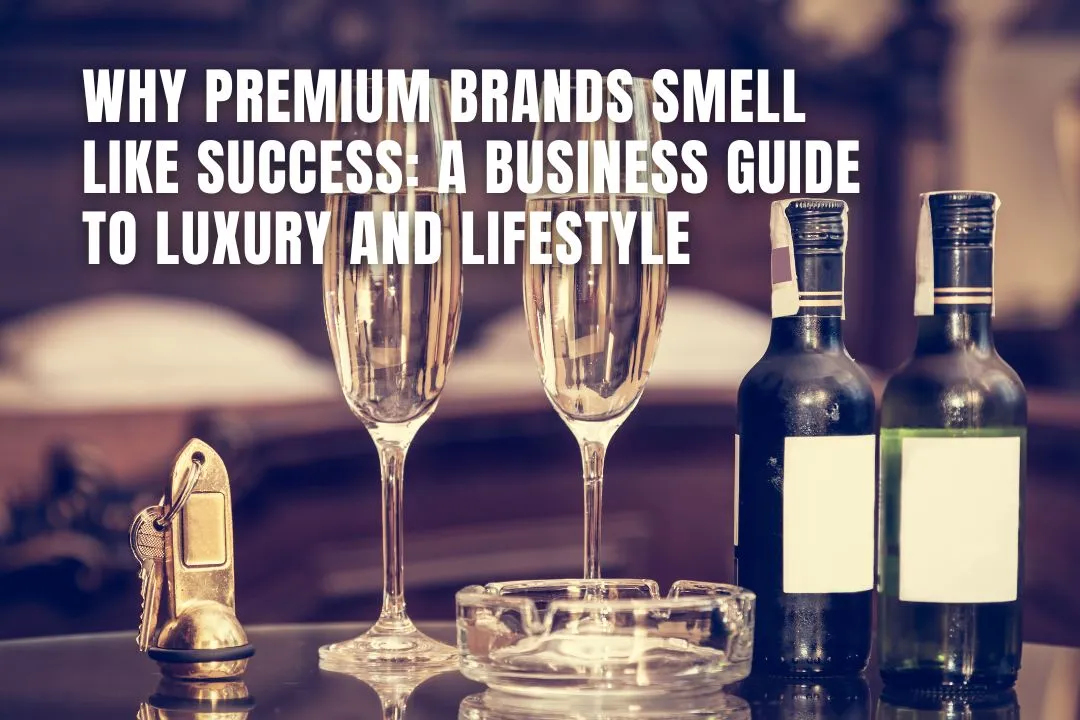
Editorial Disclaimer
This content is published for general information and editorial purposes only. It does not constitute financial, investment, or legal advice, nor should it be relied upon as such. Any mention of companies, platforms, or services does not imply endorsement or recommendation. We are not affiliated with, nor do we accept responsibility for, any third-party entities referenced. Financial markets and company circumstances can change rapidly. Readers should perform their own independent research and seek professional advice before making any financial or investment decisions.
In today's highly competitive business landscape, standing out is no longer just about having the best product or service. It's about creating a premium experience that appeals to the senses, emotions, and aspirations of your customers. Successful luxury brands master the art of sensory storytelling — they don't just sell products; they sell a feeling, a lifestyle, and an identity.
When you think of a truly premium experience, you might picture the velvety taste of a fine wine at a candlelit tasting room, or the first whiff of a high-end perfume that instantly transports you to another world.
These industries — wine and fragrance — have perfected the emotional blueprint that modern businesses must study if they want to build brands that not only attract attention but inspire loyalty.
Let's explore how the world's most successful premium brands create an unforgettable mark and how you can apply the same strategies to your own business.
Luxury brands understand a simple truth: people don't just buy goods — they invest in experiences. From the texture of the packaging to the atmosphere in the store, every detail is carefully designed to evoke emotions.
Think about the journey of a premium wine. It’s not just about what’s in the bottle. It's the story of the vineyard, the generations of expertise, the passion behind every harvest. When customers purchase that bottle, they are buying a piece of that story — a connection to heritage, craftsmanship, and excellence.
In a different realm, a luxury perfume doesn't simply offer a pleasant scent. It offers a signature — a way for a person to express their individuality, mood, or status. Each fragrance carries layers of storytelling, weaving memories and emotions into every drop.
Business takeaway:
Consider every customer interaction a part of your brand’s narrative. From your website design to your client onboarding experience, every touchpoint should reinforce the emotional story you want to tell.
The human brain processes sensory information before anything else. Smells, tastes, sights, sounds, and textures trigger memories and emotions far faster than logical thought. Premium brands leverage this insight masterfully.
The warmth of oak barrels in a winery’s tasting room or the subtle luxury of a boutique perfume shop is no accident — these environments are meticulously crafted to create an emotional imprint.
You don’t have to sell wine or perfume to benefit from this strategy. Whether you're running a consulting firm, an e-commerce store, or a wellness brand, you can create environments — physical or digital — that evoke emotion and sensory engagement.
Tip for entrepreneurs:
Ask yourself: What does my brand feel like? If it were a scent, a texture, a flavour — what would it be? Then, design your customer journey to match that feeling.
Beyond sensory appeal, storytelling remains one of the most powerful tools for building a premium brand.
Wine producers have long mastered the art of storytelling. They don't just promote a bottle; they narrate the soil composition, the climate conditions of a particular vintage, the personal stories of the winemakers. These narratives create deeper connections and make each bottle feel truly special.
Similarly, in the world of fragrance, a perfume often comes with a backstory — tales of exotic ingredients gathered from distant lands, or inspiration drawn from art, poetry, and history. These stories allow customers to see themselves not just as consumers, but as part of a larger, richer narrative.
Action step:
Write your brand story. Make it authentic, emotive, and aspirational. Then infuse it into your marketing, your product descriptions, and even your customer service interactions.
Luxury thrives on exclusivity. When something is rare, unique, or limited, it instantly feels more desirable.
Fine wineries often offer limited production runs, with specific vintages available only to loyal customers or club members. High-end perfume houses release limited-edition scents that collectors eagerly chase. These strategies tap into the human desire for rarity and prestige.
In your business, exclusivity might mean offering members-only products, early access to services, or personalised experiences that make customers feel like part of an elite group.
Idea to try:
Create a "first-look" or "members-only" tier within your business to reward loyalty and build community around your brand.
Ultimately, premium brands excel because they sell a lifestyle, not just an item.
A glass of rich, aged wine isn’t just a drink — it’s a moment of sophistication, relaxation, and indulgence. A bottle of perfume isn't merely a cosmetic purchase — it's an expression of identity and allure.
Customers want brands that help them express who they are or who they aspire to become. By aligning your brand with an aspirational lifestyle, you not only sell more, you build a tribe of loyal, emotionally invested fans.
Reflective question:
What lifestyle does your brand promise? How can you embody that promise in your marketing and customer experience?
If you want to build a truly premium brand, look to the masters — the winemakers, the perfumers, the artisans who understand that success is crafted through emotion, story, and sensory delight.
Focus on creating more than just a product or service. Craft an experience that customers don't just remember — they feel. Let your brand become a signature, just like a treasured bottle or a beloved perfume, leaving a lasting impression long after the first interaction.
When you master the art of engaging senses and emotions, your brand won't just look successful — it will smell like success.